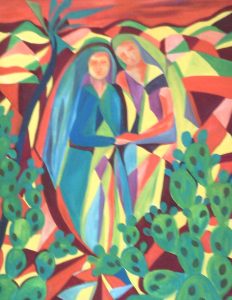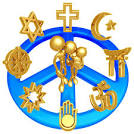
I have been reluctant to speak out publicly on the topic of Zionism and the Jewish State. However, in the wake of the Pittsburgh massacre and now another mass shooting in a synagogue in California, coupled with demonstrations against Israel, I am compelled to review my silence. I am seeing a rise in anti-Semitism across the world, which concerns me. There are a lot of conspiracy theories going around and there is a lot of misunderstanding about Jews and Judaism. I will therefore attempt some clarification on a few sensitive issues from a scholar’s point of view.
My commentary begins with the touchy topic of Zionism. It is a topic that gives rise to many “is” and “ought” questions. I have met very few non-Jews who seriously understand Zionism, yet many are quick to condemn it.
Zionism is really just a signifier with multiple definitions, it has no fixed meaning. In the works of Martin Buber, Zionism was never meant to be based on the divisions of ethnicity or religion. Israel was meant to be a haven for Jews following the Holocaust and diasporas, but not at the expense of others. In his work, The Way of Response (1966 p141), Buber writes,
“the neighbour is to be loved “as one like myself” (not as I love myself, in the last reality one does not love oneself, but rather should learn to love oneself through the love of one’s neighbour), to whom then I should show love as I wish it to be shown to me.”
Zionism has been twisted, bent and moulded to suit political whims and purposes, many of which have been oxymoronic and undesirable. Zionism can be left, right or centrist, but it has moved decidedly towards the extreme right, yet, that does not make the concept of Zionism a bad proposition. Zionism should not be a word so disparaged that it is beyond the pale because for many Jews it equates with liberation, healing and homeland (Zion). Zionism and homeland are impossible to separate. However, real Zionism should include anti-racism, equality of religious status and citizenship and it should be against all forms of discrimination, persecution and patriarchy. Zionism should be about love, not the Jewish State and that is how it was first conceived, as the love of the Jewish people manifest in the love of others.
Hitherto, the problem is not true Zionism, but nationalism. Zionism has become a rigid regime beholden to nationalism in its most extreme form. This has happened because Israel was created in desperate circumstances and the Jews had to face a large non-Jewish population who were understandably far from welcoming. Individual Jews cannot be blamed for this, they had to defend themselves. This has led to the myth that all Jews hate Arabs and all Arabs hate Jews. This is not the reality. Many Jews and Arabs live side by side quite peacefully.
Zionism was never designed to usurp the power of another nation. The Jewish state was conceived as a homeland where Jews would not be a minority. This has led to the current fear that if borders are pulled down Jews will again become a minority in their homeland. Thus, the Jewish mantra is, there will never be another Holocaust if there is a Jewish homeland. I think one has to be sympathetic to this view, especially given the constant attacks on Jewish people around the world. The principles of Zionism need not be lost because of external threats. That said, Zionism has become outmoded. On the positive side, Zionism has been shown to be adaptable so it must now change for the betterment of all in the region.
On the topic of the ongoing Israeli-Palestinian conflicts and a two-state solution my view is, it is unworkable. Today, roughly half of the Jewish people live in Israel and 40% live in the United States. Fear of assimilation and becoming a minority group is the driving force behind Israel’s border solution. Border conflicts between Israel and Palestine have been ongoing since 1948 and it has always been a struggle between minorities and the majority, a problem all states experience. Nonetheless, Borders do not solve political and social problems, they create them.
Personally, I cannot see a two-state solution workable in the context of an Israeli government that does not allow non-Jewish Israelis full rights and citizenship in the current Jewish State. In my view Israel must concede to a one state solution where every religion and ethnicity is regarded as equal before the law. No one would suggest this is an easy process, but nothing else has worked so far. In addition, the current struggle has turned a lot of people away from giving their support to Israel. We are seeing more divisions not remedies to an ever-escalating scenario. Also, it needs to be noted that many Israelis disagree with their government, but like other right-wing authorities, once the right take power, their might is hard to shift.
Israel’s history, religion and symbolism continues to be important to Jews and non-Jews alike. Israel is not a theocracy; it has a large secular population. However, there are fundamental laws in Orthodox Judaism that make it difficult for many to assimilate, including many born Jews. It raises a further question: Who is a Jew?
It would be impossible to count the number of people who would have Jewish ancestry given the diasporas and given that the Jews are among the oldest civilisations in the world, but rather than benefit from assimilation Israel’s right-wing government has given preference to racial purity or conversion. One also has to acknowledge that it is this unity that has afforded the Jews their survival and while many Jews cling to this idea, many more welcome newcomers to the Jewish population.
Conversion is not easy, firstly because it is a scholarly system of belief in which most Jews have immersed themselves in decades of study. Secondly, Jews are very aware of the reality that being Jewish has its risks and once Jew, always a Jew. There is a common myth among some that non-Jews will have to ask the Rabi three times before being granted the passage to conversion. I am not sure if this is true or not.
Devout Jews will generally revert to Torah for answers to difficult problems and the questions of identity and belonging remind me of the story of Ruth the Moab who takes the God of Israel as her own and travels to the Holy Land with her mother-in-law Naomi. (You can read about it in the Biblical Book of Ruth). The work is read in synagogues on the Jewish holiday of Shavuot, which should convey some kind of message about welcoming non-Jews into the homeland, be they Christians, Palestinians or others.
To me, open borders have their pitfalls, but they also have profound ways of dealing with racial and religious problems in a non-threatening and inclusive manner. As things stand, we live in a global world where the policies of one nation can impact severely on another. Jews in America, or anywhere should not have to pay the price for what happens elsewhere.

